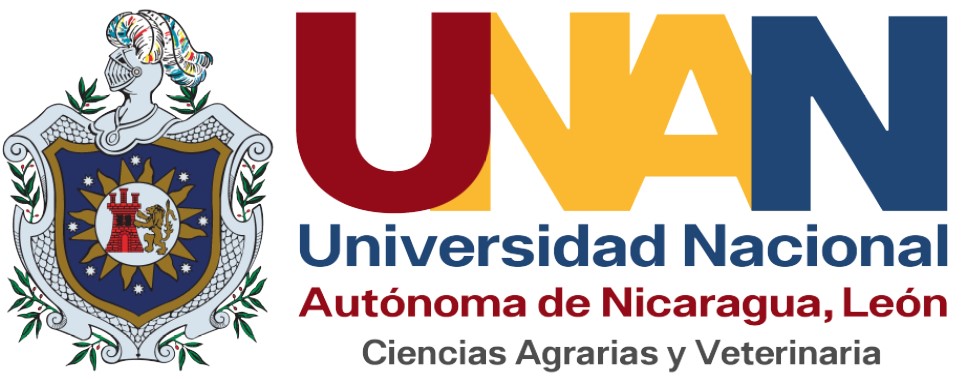Impacts of climate change on agriculture and food security
DOI:
https://doi.org/10.5377/ribcc.v2i1.5700Keywords:
Climate change, Farming, Food safety, Resilience, AdaptationAbstract
The present study focused on a review of the literature to show the impacts that Climate Change generates in Agriculture and Food Security of many producing families in Central America, particularly Nicaragua and especially those belonging to the so-called dry corridor where the effects They are more severe. It should be mentioned that the various climate changes that have occurred in the last years 2012-2015 mainly temperature and precipitation have had very negative consequences on livelihoods and particularly in agriculture, which has put at risk the availability of food and the access of water from producers and producers creating economic, social, and environmental instability. Therefore, knowing our threats, vulnerabilities, identifying risks and monitoring climate behavior is key in making wise decisions in the agricultural sector in the face of diverse climatic variants, on the other hand, establishing adaptation strategies as part of rural education that help improve productivity, ensure access to water and food, is also essential to reduce economic, physical and human losses. We agree with the position of the government being consistent with the recognition of the main components of climate risk. It is about achieving the ability to reduce, reduce or eliminate exposure to hazards, the ability to improve, highlight or maximize the endogenous properties of vulnerability and capacity to generate knowledge, conscience, behaviors and habits that allow facing events and recovering from their effects.
Downloads
Metrics
References
Aguilar Yvette (2011). Impactos del Cambio Climático en la Agricultura de América Central y en las familias productoras de granos básicos.
Alfaro, W., & Rivera, L. (2008). Cambio climático en Mesoamérica: temas para la creación de capacidades y la reducción de la vulnerabilidad. Guatemala febrero.
Altieri & Nicholls (2008). Los impactos del cambio climático sobre las comunidades campesinas y de agricultores tradicionales y sus respuestas adaptativas. Agroecología, 3, 7-24.
Altieri & Nicholls, (2009). Cambio climático y agricultura campesina: impactos y respuestas adaptativas. LEISA revista de agroecología, 14, 5-8.
Appendini, K., Barrios, R. G., & De La Tejera, B. (2003). Seguridad alimentaria y calidad de los alimentos: ¿una estrategia campesina? European Review of Latin American and Caribbean Studies, 65-84.
https://doi.org/10.18352/erlacs.9694
Conde-Álvarez, C., & Saldaña-Zorrilla, S. (2007). Cambio climático en América Latina y el Caribe: impactos, vulnerabilidad y adaptación. Ambiente y desarrollo, 23(2), 23-30.
Dehollain, P. L. (1995). Concepto y condicionantes de la seguridad alimentaria en hogares. Revista agroalimentaria, 1(1), 4.
González Elizondo, M., Jurado Ybarra, E., González Elizondo, S., Aguirre Calderón, Ó. A., Jiménez Pérez, J., & Návar Cháidez, J. D. J. (2003). Cambio climático mundial: origen y consecuencias. Ciencia uanl, 6(3).
Iglesias, A., & Martín, F. M. (2009). Consecuencias del cambio climático para la agricultura: ¿un problema de hoy o del futuro? Revista española de estudios agrosociales y pesqueros, (221), 45-70.
Ley No 693 Ley de Soberanía y Seguridad Alimentaria y Nutricional (2010), Asamblea Nacional Managua-Nicaragua y Organización de las Naciones Unidas para la Agricultura y Alimentos (FAO),
Panel Intergubernamental sobre el Cambio Climático, IPCC. (2014). Impactos, adaptación y vulnerabilidad del Cambio Climático. Quinto informe de evaluación climática.
Pedraza, D. F. (2003). Seguridad alimentaria familiar. Universidad Federal de Pernambuco. Bolsista CAPES/CNPq-IELN-Brasil.
Rueda, V. O. M., & García, C. G. (2002). Vulnerabilidad y adaptación regional ante el cambio climático y sus impactos ambientales, sociales y económicos. Gaceta ecológica, (65), 7-23.
Samaniego, J. (2009). Cambio climático y desarrollo en América Latina y el Caribe. Reseña 2009.
Vázquez-Montenegro, R.J., Durán, O., & Baca M. (2014). Modelos de impacto en la agricultura teniendo en cuenta los escenarios de la agricultura del cambio climático. Revista Iberoamericana de Bioeconomía y Cambio Climático.1(1), 1-50. https://doi.org/10.5377/ribcc.v1i1.2140
https://doi.org/10.5377/ribcc.v1i1.2140
Presentación del Dr. José Milán Pérez en el Congreso Nacional de Cambio Climático el 25 de Noviembre del 2015.
IPCC (Intergovernmental Panel on Climate Change), 2006. 2006 IPCC guidelines for national greenhouse gas inventories, In: Eggleston, H.S., Buendia, L., Miwa, K., Ngara, T., Tanabe, K. (Eds.), Institute for Global Environmental Strategies (IGES), Kanagawa, Japan [available at http://www.ipcc-nggip.iges.or. jp/public/2006gl/index.html].
Crowley, T. J., & North, G. R. (1988). Abrupt climate change and extinction events in earth history. Science, 240(4855), 996-1002.
https://doi.org/10.1126/science.240.4855.996
Oreskes, N. (2004). The scientific consensus on climate change. Science, 306(5702), 1686-1686.
https://doi.org/10.1126/science.1103618
Maldonado, J. H., Gómez, J. A., & Rosada, T. (2015). Rural development programmes and conditional cash transfers: examining synergistic effects in Latin America. Policy in Focus: Social Protection, Entrepreneurship and Labour Market Activation, 12(2), 30-32.
Downloads
Published
How to Cite
License
Copyright (c) 2018 Revista Iberoamericana de Bioeconomía y Cambio Climático

This work is licensed under a Creative Commons Attribution-NonCommercial-ShareAlike 4.0 International License.
Copyright © 2025 Rev. iberoam. bioecon. climate change. National Autonomous University of Nicaragua León (UNAN-León), Knowledge Area of Agrarian and Veterinary Sciences / Specific Area of Agroecology and Agribusiness / Center for Research in Agrarian Sciencies. Academic Directorate. Research Department. Publication and scientific events Unit.












 EDITORIAL
EDITORIAL e-ISSN
e-ISSN


 COPYRIGHT
COPYRIGHT This work is licensed under a Licencia Internacional
This work is licensed under a Licencia Internacional 












